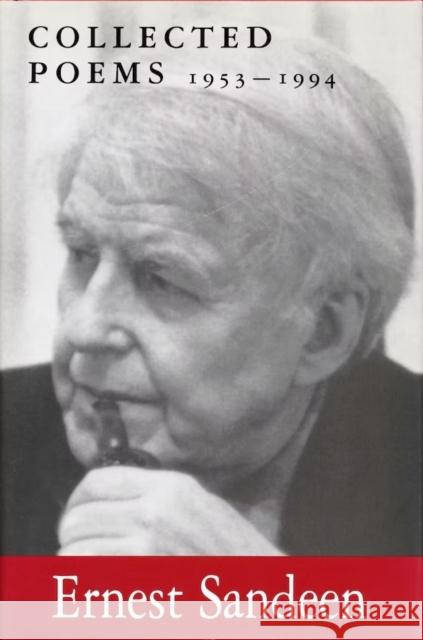Collected Poems: 1953-1994 » książka
Collected Poems: 1953-1994
ISBN-13: 9780268022686 / Angielski / Twarda / 2001 / 336 str.
"The poems of Ernest Sandeen among other things record not only a writing life but a life in writing: a history of the hours when reflection turns to discovery, and observation finds its fulfillment in the rhythms of a sentence, the weaving of consonants through a line, in pursuit of a mystery. Few poets have been blessed with the gift to sustain that process of meditation, composing, and questioning so consistently, and for so long, in works that are clear-eyed, passionate, and precise." Robert Pinsky, from the Foreword
During his long tenure in the English department of the University of Notre Dame, Ernest Sandeen published widely. His first published poem, "Parked Car," appeared in the "New Yorker "in 1938. After that, his poems appeared in major reviews, journals, and magazines. They were also collected in six volumes: "Antennas of Silence" (1953), "Children and Older Strangers" (1962), "Like Any Road Anywhere" (1976), "Collected Poems: 1953-1977" (1977), "A Later Day, Another Year" (1989), and "Can These Bones Live?" (1994). "Collected Poems 1953-1994" is a comprehensive collection, representing the best of Sandeen s previous six volumes the poems he wished to preserve.
Ernest Sandeen spent virtually his entire life in the century s poetically generated culture. A contemporary of well-known poets such as W. H. Auden, Gwendolyn Brooks, and Robert Bly, Sandeen s first literary influence was Carl Sandburg, with whom he shared the hometown of Galesburg, Illinois. Taken together, the poems in this new and augmented volume demonstrate what many discerning readers have always known that Ernest Sandeen was one of the best poets of his generation, who also deeply influenced many contemporary poets.On the occasion of Sandeen s death in 1997, former Poet Laureate Robert Hass said in an interview, what I love about Sandeen s] poetry is the way it has a sort of sweet gravity to it that makes you feel that the poet was a genuinely wise man. You feel that in his craft as much as in anything else, that the poem says what it needs to say, so that not needing to show off is a form of beauty. There is a kind of seriousness and grace.
"











